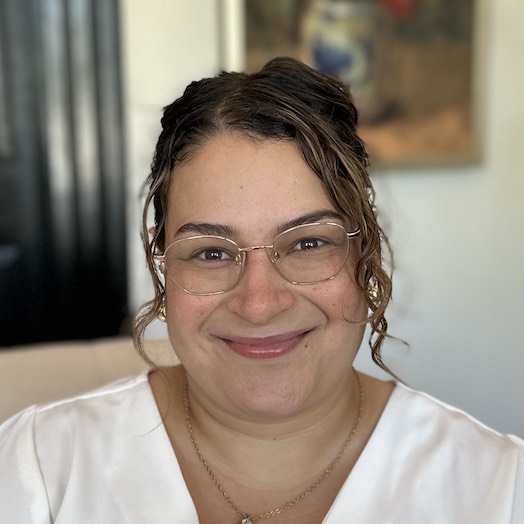
Being alert in an environment — especially a dangerous or hostile one — is a survival skill we are all mentally conditioned to do. This heightened state can help us to pick up on small details and cues that can help us to stay safe.
But, when this state becomes the standard way your mind processes the world around you, it can be incredibly damaging. Think about it like this:
If you’re running a 5k, you pace yourself to make it to the finish line. You might start off a little faster and realize that you still have a lot of race to run and slow down. This would be an example of a healthy use of the “fight or flight” response that we feel in dangerous situations. We start with all the adrenaline of the situation but then settle into a more sustainable rhythm.
Conversely, if we try to maintain our beginning speed — that was too fast for the entire race — we’re going to quickly get wary and exhausted. We might not even finish the race.
Hypervigilance is like sprinting. It is an incredibly useful tool — it keeps us safe because it allows us to escape dangerous situations — but it is not a long-term sustainable state.
What Is Hypervigilance?
Alright, while the 5k metaphor can give us a pretty good idea of hypervigilance, what is it in terms of mental health and science?
According to the American Psychological Association (APA), hypervigilance is “a state of abnormally heightened alertness.” So what does this mean? Basically, hypervigilance is when our “fight or flight” instincts kick in, we are hyper-aware of our surroundings, and we are on high alert.
Oftentimes, frequent hypervigilance can be a symptom of mental health conditions, such as anxiety, PTSD, and schizophrenia. It can also negatively affect how we perceive and interact with those around us and encourage feelings of paranoia. Some studies suggest that continued hypervigilance can form a positive feedback loop that increases anxiety over time.
Common Examples of Hypervigilance
Everyone is going to react to hypervigilance in different ways. But, like most things, there are a variety of common symptoms and examples that we can look out for to help us determine if we are being hypervigilant or not.
There are four categories of symptoms; these are physical, mental, behavioral, and emotional. You may only experience symptoms of one category, or you may experience symptoms from all four or anywhere in between.
Physical
The physical symptoms of hypervigilance are similar to those caused by anxiety. This can make it challenging to identify the cause of these symptoms. Still, if paired with symptoms from the other categories, these can be a good indication that you are being hypervigilant.
Common symptoms are a quickened heart rate, fast and shallow breathing, and sweating a lot. While these are all completely natural reactions that our bodies take in states of vigilance, if we are constantly in this state, our bodies can become fatigued and exhausted in time.
Mental
The most common mental symptom of hypervigilance is paranoia and rationalization.
Many people find it difficult to sleep well if they frequently experience hypervigilance. This is very common in individuals with post-traumatic stress disorder (PTSD).
Behavioral
Common behavioral symptoms of hypervigilance are behaviors like a fast reaction to your environment, jumpy reflexes, avoidance of social situations, substance abuse, overworking, and frequent overreaction to loud noises or comments from others. While not always the case, for many people, some of these reactions can be quite hostile because they perceive a threat and try to keep themselves safe.
Emotional
Our minds are not meant to constantly be in a state of hypervigilance. Prolonged hypervigilance can lead to severe anxiety, panic, fear, and a general persisting feeling of worry. Many people who are frequently hypervigilant also can become socially isolated and develop mood swings and increased emotional outbursts.
How to Cope
There is no simple, easy way to completely get rid of hypervigilance. And even if there was, this could be incredibly damaging to our health if we are in a situation where we need to access our hyper-alert state.
But, even if there is no way to turn it off for good, there are a number of ways that we can better cope with hypervigilance in our lives. So, without further ado, here are a few tips that you can use to reduce the impact of hypervigilance in your daily life.
Self-Care
The concept of self-care has gained popularity over the past few years. After all, a global pandemic and state-imposed quarantine would be enough to get anyone to want to spend a little extra time ensuring that their mind and body are taken care of.
Good self-care will likely look different for each of us because we are all unique. That said, at the very least, you should ensure that you are tending to your basic needs — such as food, rest, and exercise. Suppose you find yourself experiencing episodes of hypervigilance a lot. In that case, you may not be offering your body what it needs, causing your mind to view your current environment as hostile.
So, take the time to check in with yourself and prioritize caring for your body and mind.
Mindfulness
Mindfulness techniques and exercises can be a great way to help you pause for a moment before reacting. These exercises help us stay present in the moment and reflect on what is actually happening — versus what we may have perceived to be happening while in a state of hypervigilance.
There are numerous exercises that you can try to promote mindfulness, but one simple step that you can take is to just focus on your breath. Notice if you are breathing quickly. This can be a sign of hypervigilance (as we mentioned above), and noticing that can help us realize to slow down and release tension we may have stored in our bodies as well.
This can help to relax your body and help you to ease out of the high-alert mode that hypervigilance keeps us in.
Look for the Evidence
A lot of times, we will jump to conclusions and react before we even think about the situation objectively. This is especially true if we feel we are being attacked or insulted by someone else. Because of this, it can be incredibly important to take time to really search for objective evidence before reacting.
You may find that the person that you thought was being offensive was actually not intending to insult you or make you feel bad. If this is the case, you can react more appropriately and lessen the likelihood of getting into an argument or feeding into your “fight or flight” response.
Set Boundaries
Boundaries are important because they allow you to maintain a level of control about when and at what levels you interact with others. Setting boundaries for yourself and for others can be an incredibly effective way to ensure that you are not allowing yourself to overwork or interact with others when you need to take time for yourself.
Seek Out a Professional
Whether you’ve tried out all of the previous tips or you’re looking for some help in implementing them more effectively, seeking a therapist can be an excellent way to learn new techniques and skills to help you cope with hypervigilance. If you’re currently in a relationship, doing therapy sessions with your partner can often make the therapy experience even more effective.
As we mentioned before, there is no one cure-all for hypervigilance. Because of this, the best way to cope with and address this type of hyper-alertness is going to be different for everyone. But, if you are ready to start learning how to cope with hypervigilance, please do not hesitate to reach out to us at Love Heal Grow to get in contact with one of our licensed therapists.
























